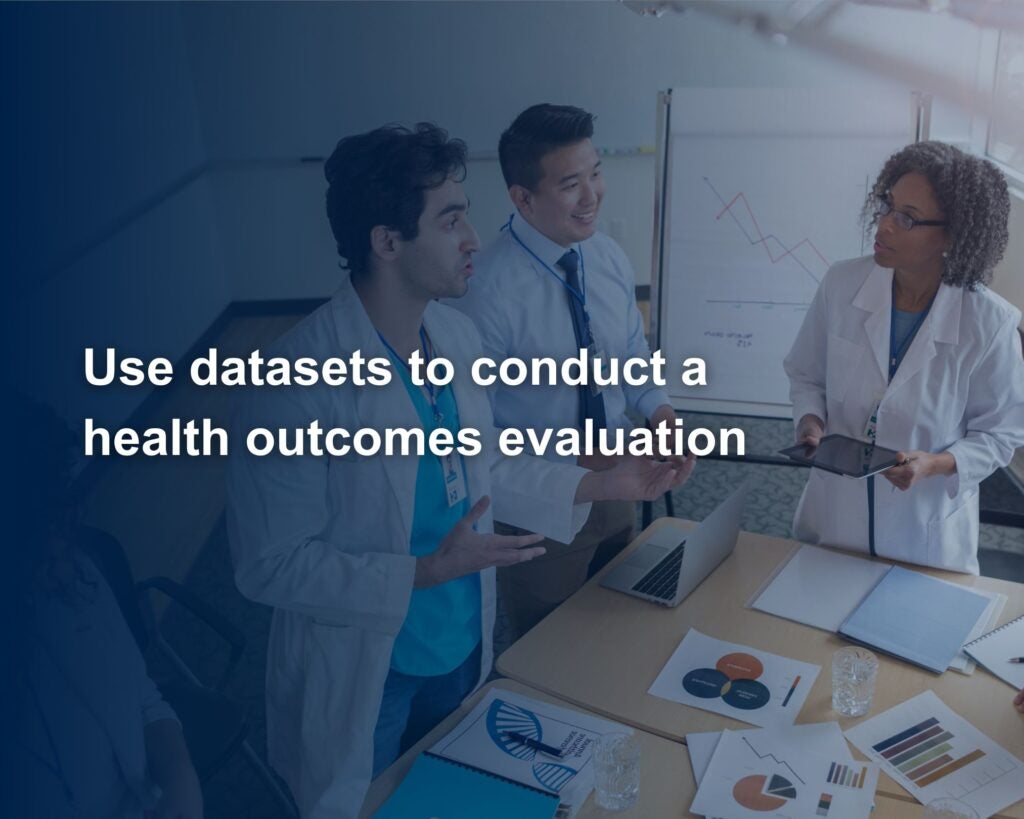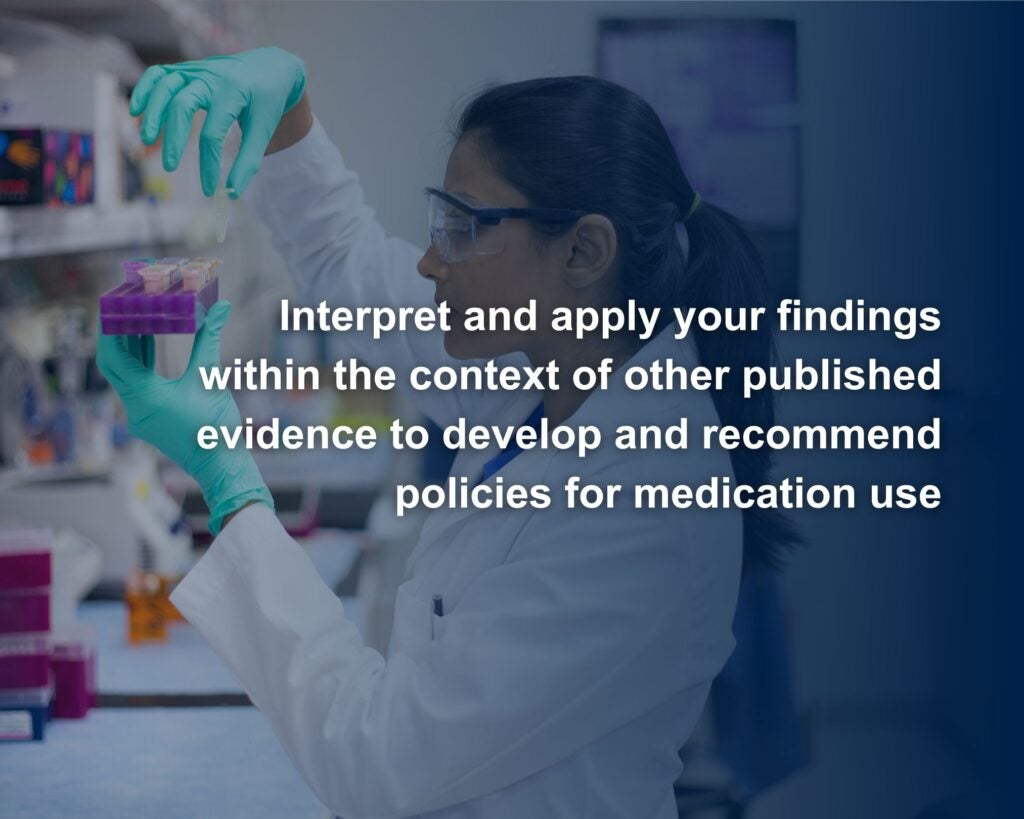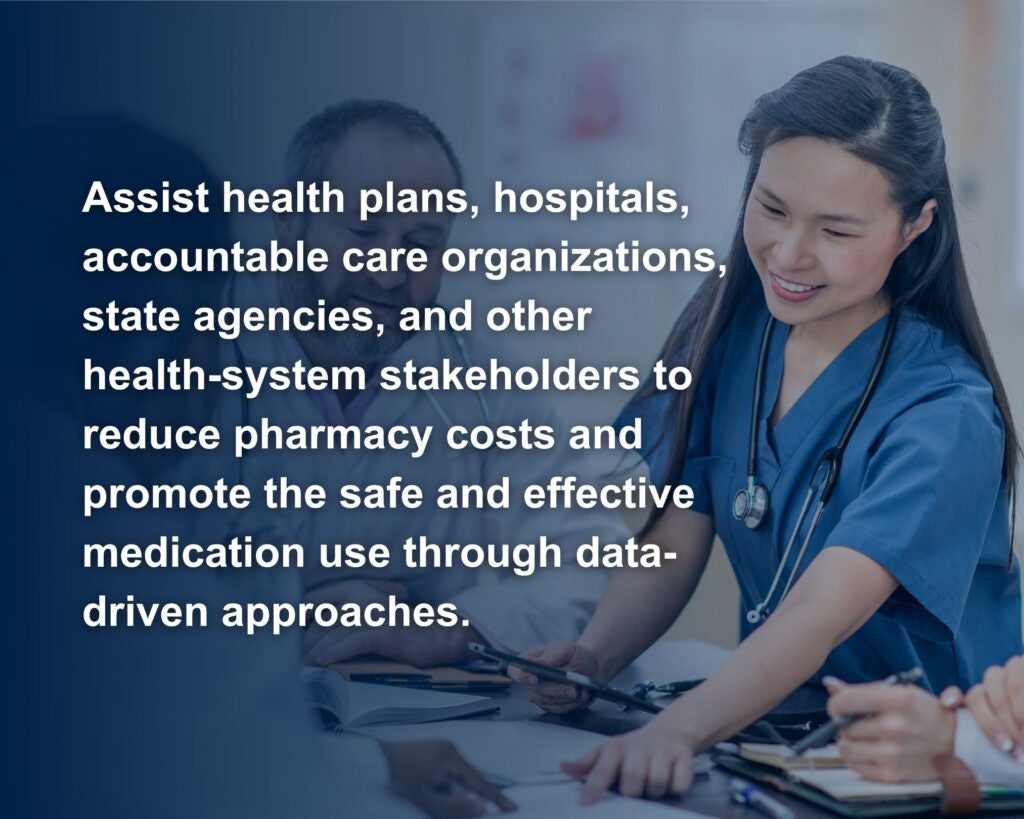Overview
The study of medication outcomes specifically examines how medications affect health outcomes, aiming to improve medication safety, efficacy, and patient adherence. The skills gained in this program prepare you for a career in areas like health economics, managed care, policy, medication safety, and risk management, equipping you to make a positive impact on patient health and healthcare efficiency.
Upon completion of the Medication Outcomes Graduate Certificate Program, you will be able to:
- Structure a medications outcomes analysis
- Use datasets to conduct a health outcomes evaluation
- Interpret and apply your findings within the context of other published evidence to develop and recommend policies for medication use; and
- Assist health plans, hospitals, accountable care organizations, state agencies, and other health-system stakeholders to reduce pharmacy costs and promote the safe and effective medication use through data-driven approaches.
Courses
PHP 529: Introduction to Health Outcomes
PHP 559: Essential Methods of Pharmacoepidemiology
PHP 589: Essential Methods of Pharmacoeconomics
PHP 649: Applications of Medication Outcomes Evaluation
Admissions
- Bachelor’s degree
- College transcripts
- Two letters of recommendation
- Resume/CV
- Statement of purpose
- Interest in program
- Relevant work experience
- Reasons for applying to the online program at URI
- Professional goals, as well as plans for achieving these goals

Application Deadline: August 5
Classes Begin: September 9

Program Outcomes
Upon completion of the Medication Outcomes Graduate Certificate Program, you will be able to:














